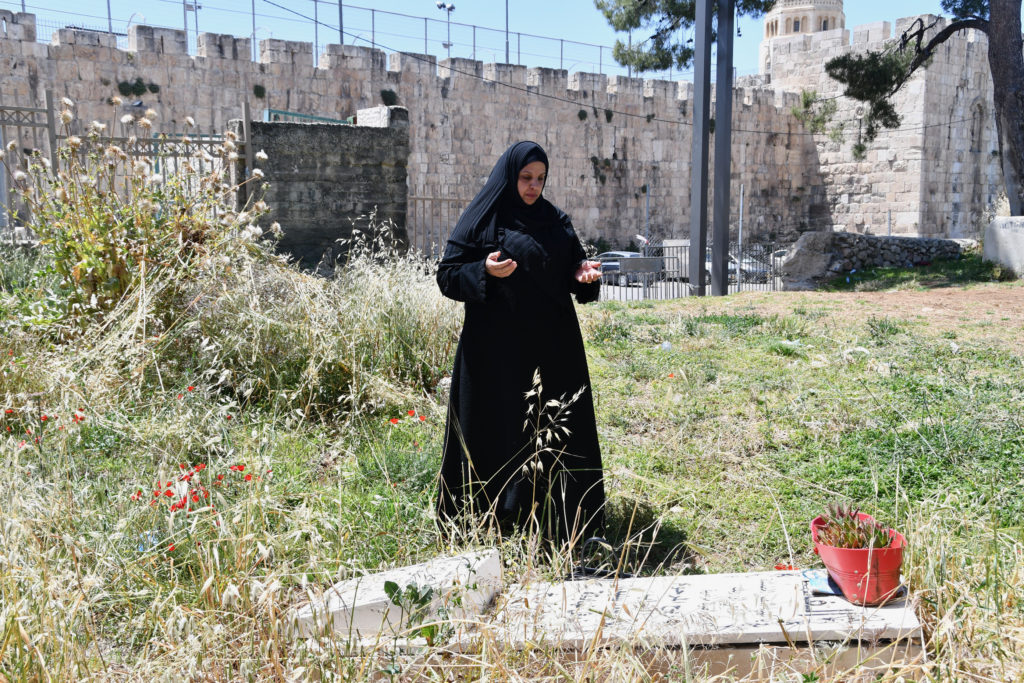by JESSICA BUXBAUM

Surrounded by bulldozers, Ola Nababta clung to her son’s grave to prevent Israeli authorities from razing his remains.
“Pour the earth over me and bury me beside him,” the 54-year-old told Israeli soldiers.
????| ???????? ?? ???? ?????? ????? ??? ????? ??????? ?? ?????? ????? ???????? ???? ?????? ???????? ?? ??????? ???????? ?? ????? ???????. pic.twitter.com/ER2n0fJ3vD
— ?????? ????????? ??????? (@PalinfoAr) October 25, 2021
That particular day in October, she was successful in stopping the Israeli government from exhuming her son’s grave. But more than six months later, al-Yusufiya cemetery in East Jerusalem remains under threat as the city’s government plans to build a promenade over the land, as part of a proposed “Bible Trail,” a string of national parks.
In February, the Jerusalem Municipality’s planning board rejected objections from Muslim religious authorities and Palestinian landowners against the municipality’s seizure order for part of the cemetery to construct the park. Court hearings are still ongoing as the parties debate the ownership of the cemetery and objections to the confiscation order.
‘Picnics Alongside Graves’
Mustafa Abu Zahra, head of the Committee for the Care of Islamic Cemeteries, described the municipality’s actions as an attack against graveyards and a violation of the Palestinian people’s rights.
“How can people go and have picnics on the side of graves?” Abu Zahra told Toward Freedom.
According to Abu Zahra, seven graves are located in the area set to be expropriated, with many more that are unmarked.
Part of the cemetery belongs to the Jerusalem Islamic Waqf, a Muslim body responsible for managing holy sites in East Jerusalem. The other section belongs to the el-Uweisat family. While the family’s section was a sheep market during most of the 20th century, it has since become a parking lot.
The Jerusalem Development Authority together with Israel’s Nature and Parks Authority (INPA) began construction in the cemetery last year, telling Toward Freedom they have received all of the necessary permits and court approvals for construction. In October, human bones were found during excavation works at the cemetery, sparking widespread protest. Nababta was one of those protecting their loved ones’ graves from Israeli bulldozers. Despite Palestinian resistance to the project, authorities finished building a fence dividing the cemetery and demolished a staircase in late 2021.
The municipality argues the area in question is defined as a public green space. “The graves that were shown in the media were built in the open public area outside the cemetery,” a spokesperson for the Jerusalem municipality told Toward Freedom. In 2014, Israel banned Palestinians from being buried in the cemetery and later poured concrete over around 40 graves.
“Nevertheless, it should be emphasized that no tomb was damaged during the works, and there is no intention to displace any grave, even if built illegally,” the spokesperson continued, adding the park is meant to improve Muslim residents’ quality of life and make the area more accessible.
Toward Freedom for more
